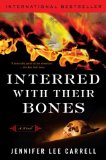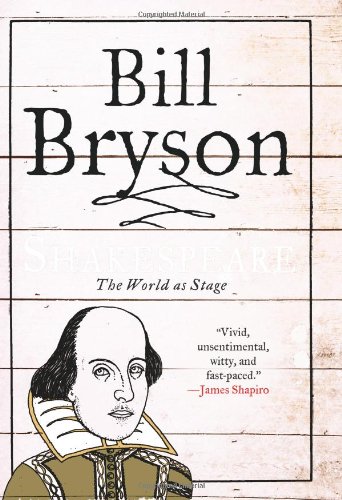 Jennifer Lee Carrell’s novel Interred with Their Bones is the story of Kate Stanley, accompanied by a series of helpful and untrustworthy sidekicks, who is searching for Shakespeare’s lost play Cardenio after being put on the scent of the play by her mentor, Rosalind Howard.
Jennifer Lee Carrell’s novel Interred with Their Bones is the story of Kate Stanley, accompanied by a series of helpful and untrustworthy sidekicks, who is searching for Shakespeare’s lost play Cardenio after being put on the scent of the play by her mentor, Rosalind Howard.
I wanted to like this book, but in the end, I wonder why Matthew Pearl alone of the writers I’ve read seems capable of writing a good literary thriller. Interred with Their Bones is a dizzying and sometimes quite poorly written reworking of The Da Vinci Code with Shakespeare at the center instead of the Holy Grail. It was a tedious read.
Let’s begin with characterization. Carrell suffers from the same problem that Dan Brown does with characterization. She fleshes out a few characters well enough to make them intriguing and somewhat believable, as Brown did with Sir Leigh Teabing, but her main character languishes, unknowable and ultimately impossible to sympathize with. Her characters Sir Henry Lee, the stage actor I imagined to be like a Patrick Stewart or Ian McKellen, both lions of the modern Shakespearean stage, was perhaps the most well-drawn character, with Athenaide Preston, a wealthy Shakespearean enthusiast, coming in a close second. The specter of Rosalind Howard never quite becomes as real or defined as I think Carrell wants her to be, and the remaining characters are somewhat flat caricatures straight out of a romance novel.
I think the premise of the book has merit, but it becomes bogged down in the argument over who Shakespeare really was. It seems clear to me that most people who raise this question have an agenda, and it would spoil too much of the plot (if you should want to read this book, which I don’t recommend), to tell you what Carrell’s agenda appears to be; however, I find the argument about Shakespeare’s supposed secret identity frustrating and tiresome, so perhaps it’s just me.
Another detail that rankles is that Kate is supposed to be a Shakespearean scholar. For someone we are supposed to believe is so knowledgeable about Shakespeare, she is startlingly slow on the uptake. Her opportunities both in scholarship and directing Shakespeare are implausible. Though Carrell explains this issue late in the novel, the answer is unsatisfactory. I think she might have done better to age her heroine a bit to make her success more believable. We are repeatedly told Kate is a prodigy by the characters around her as if they are trying to convince us to ignore all the evidence to the contrary. I believe Carrell wanted to make the book accessible to readers who are not familiar with Shakespeare, but I ultimately felt like I was being talked down to.
If you are looking for a light beach read or a quick mystery, this novel actually suffices better than The Da Vinci Code, but if you are a true fan of Shakespeare and a book lover, look elsewhere. I felt that Anthony Burgess’s novel Nothing Like the Sun was great, for a start.








